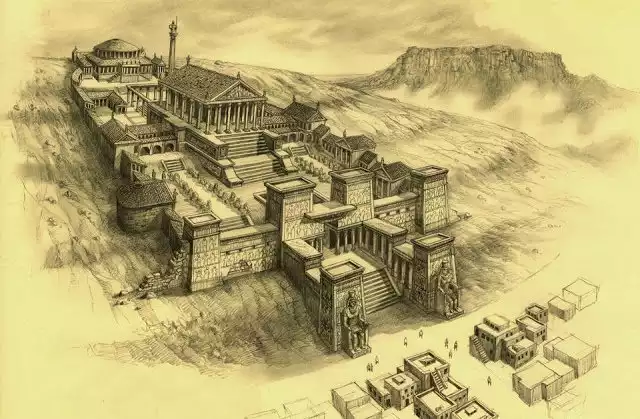
The Library of Alexandria, an ancient cradle of knowledge, stands as a symbol of intellectual pursuit and cultural exchange. Its name, deriving from the city of Alexandria in Egypt, epitomizes the zenith of ancient learning and scholarly activity. Founded in the early 3rd century BC, the library was part of a larger research institution called the Musaeum of Alexandria, where scholars and thinkers from various parts of the world congregated. The Library of Alexandria was not merely a repository of scrolls but a complex center for study, translation, and the preservation of knowledge. It represented an amalgamation of diverse cultures and ideas, making it a prototype for modern universities and national libraries.
The Rise of the Library and its Multifaceted Role
The inception of the Library of Alexandria is attributed to Ptolemy I Soter, a successor of Alexander the Great. His vision was to establish a universal library that would encompass all human knowledge. Under the stewardship of Demetrius of Phaleron, a student of Aristotle, the library flourished, acquiring scrolls from across the known world. It became a beacon for scholars, attracting illustrious names like Euclid, Archimedes, and Herophilus.
The library’s primary function transcended mere storage of texts. It was a hub for the translation of works, notably the Septuagint, the Greek version of the Hebrew Bible, thus bridging linguistic and cultural divides. This translation is referenced in religious texts, including the Bible, specifically in the works of Philo and Josephus, indicating its significance in the Judeo-Christian tradition.
Its role in the development of various disciplines cannot be overstated. In astronomy, it was where Eratosthenes accurately measured the Earth’s circumference. In literature, it preserved the epics of Homer and the plays of Sophocles. In medicine, it housed the works of Hippocrates and Galen, setting the foundations for medical science.
The library’s significance also lay in its role as a melting pot of cultures and ideas, an early form of cultural globalization. This cosmopolitan environment fostered dialogue and debate, enriching the intellectual landscape of the ancient world.
The Library of Alexandria’s impact was profound, laying the groundwork for future academic and research institutions. Its emphasis on the collection, preservation, and dissemination of knowledge echoes in modern libraries and universities, underlining its enduring legacy in the realm of learning and scholarship.
The Decline and Enduring Mystique
The decline of the Library of Alexandria is shrouded in mystery and subject to various accounts. While some narratives attribute its demise to Julius Caesar’s fire during the siege of Alexandria in 48 BC, others point to later incidents, such as the conquest by Aurelian in the 3rd century AD, or the decree by Theophilus in 391 AD. The definitive moment of its final destruction, however, remains a subject of historical debate.
Regardless of its end, the Library of Alexandria’s legacy persists. It symbolizes the thirst for knowledge and the value of preserving cultural heritage. The loss of its vast collection is often mourned as one of the greatest cultural tragedies in history, fueling imaginations and scholarly pursuits. This storied institution represents not only the accumulation of ancient wisdom but also the fragile nature of human achievements in the face of time and turmoil.
The Library of Alexandria, more than a physical entity, represents an ideal of knowledge and cultural exchange. Its story is a poignant reminder of the fragility of cultural treasures and the importance of preserving knowledge for future generations. Its legacy continues to inspire the pursuit of learning and the importance of libraries as repositories of human understanding.
References
- Digital Commons at the University of Nebraska – Lincoln. “Library Philosophy and Practice.” Accessed December 21, 2023.
- Grout, James. “Encyclopaedia Romana: Library of Alexandria.” Accessed December 21, 2023.
- JSTOR. “Journal of the History of Ideas.” Accessed December 21, 2023.
- Mid-Continent Public Library. “Historical Libraries: Library of Alexandria.” Accessed December 21, 2023.
- Perseus Digital Library at Tufts University. “The Library of Alexandria.” Accessed December 21, 2023.
